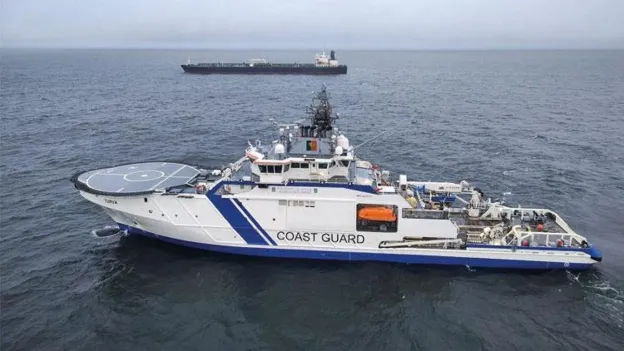
Undersea Cable Crisis in the Baltic Sea Raises Alarm in Europe

baltic sea - The damage to energy and communication cables under the Baltic Sea has intensified discussions of 'hybrid warfare' in the region.
The recent damage to energy and communication cables connecting countries under the Baltic Sea has once again put the spotlight on Russia. The incident, involving the cables linking Finland and Estonia underwater, has led to accusations of Russian sabotage by Europe and NATO. Not only engaging in conventional attacks against Ukraine, but Russia is also suspected of carrying out hybrid attacks against the country and its supporters. NATO has decided to increase its presence in the Baltic Sea following the incident.
Four cables, including three between Finland and Estonia and one between Finland and Germany, have been damaged. The main suspect in the incident is believed to be a ship belonging to a Russian shadow fleet. The Finnish police identified the Cook Islands-flagged ship named Eagle S, which was passing through the region and significantly slowed down when the cable incident occurred. The ship was taken to a port in Finland for further inspection. The term 'shadow fleet' is used to describe vessels carrying Russian crude oil and petroleum products under embargo due to the occupation of Ukraine.
The European Commission referred to the incident as the 'latest in a series of suspicious attacks on critical infrastructure' and mentioned that the ship in question supports the Russian war budget, posing threats to security and the environment as part of Russia's shadow fleet. The EU will propose further measures, including sanctions, to target this fleet. Rutte condemned the incident and reassured readiness for more support, emphasizing NATO's strengthening military presence in the Baltic Sea. Estonia and Lithuania have increased monitoring and patrol activities in the region.
This is not the first incident in the Baltic Sea. Prior to this, internet cables between Finland and Germany, as well as Finland and Sweden, were damaged in recent months. The internet cable between Lithuania and Sweden's Gotland Island also went offline. Last year, damage was reported in the natural gas pipeline between Finland and Estonia. German prosecutors are still investigating the explosion in the Nord Stream pipeline between Russia and Germany in 2022. Estonian Foreign Minister Margus Tsahkna remarked that the frequent damage to critical underwater infrastructure makes it hard to believe these are accidents or mismaneuvers.


Leave a comment